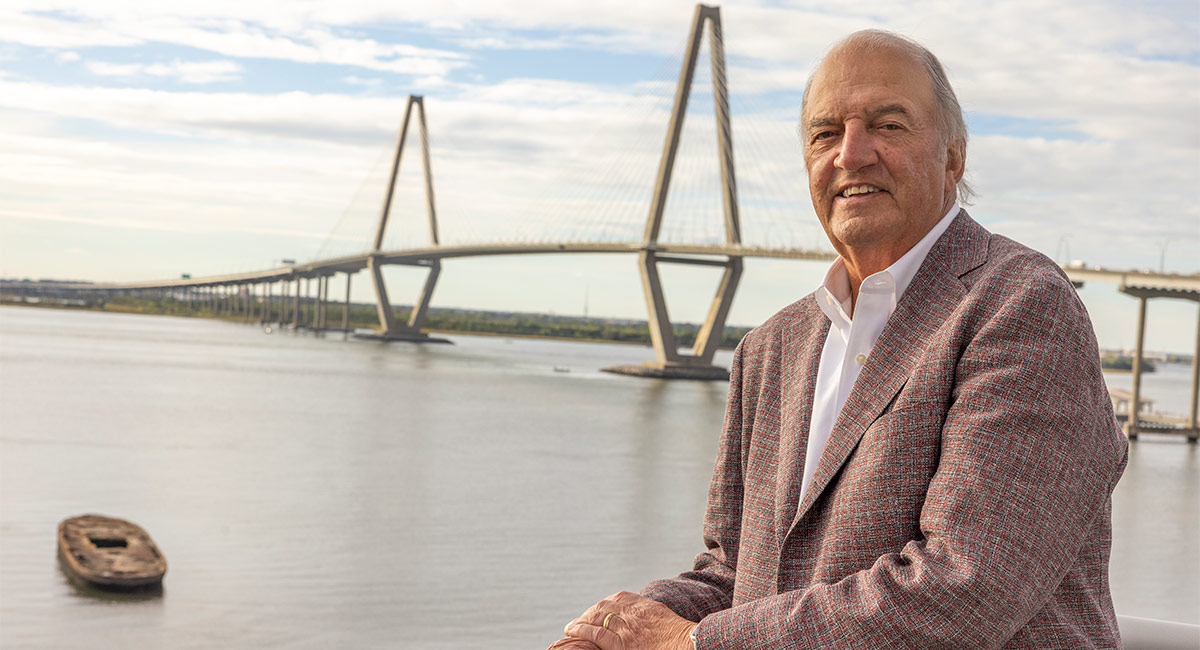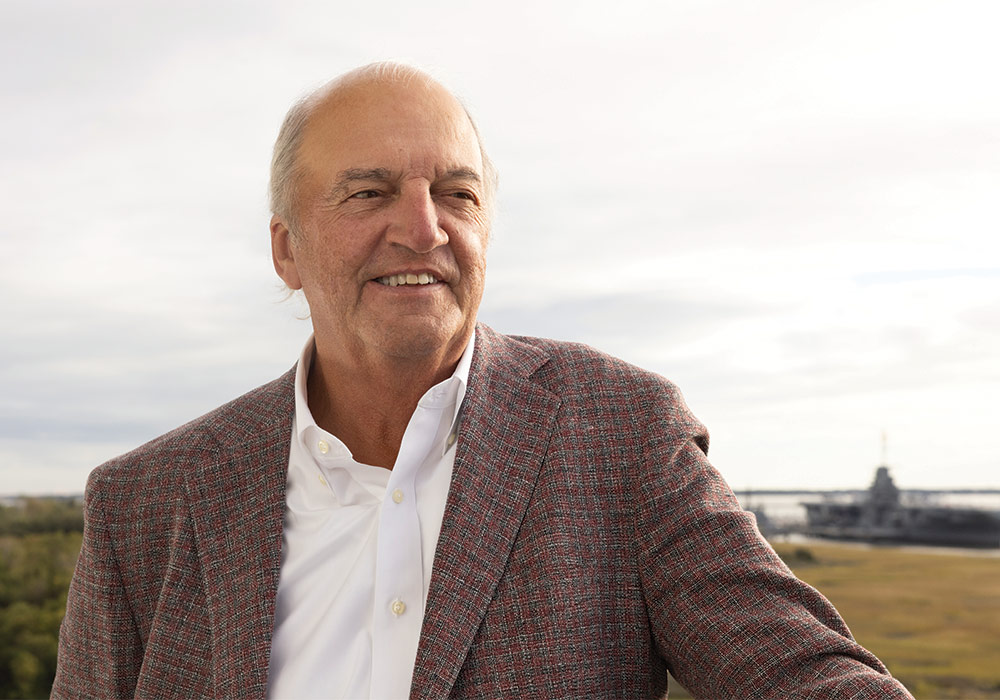As a veteran attorney, Joe Rice has been described as tenacious and formidable. The co-founder of the Mount Pleasant-based Motley Rice LLC has crafted multibillion-dollar settlements resolving some of the nation’s largest civil actions over the past 30 years.
Those high-profile successes include the $246 billion agreement with the tobacco industry – the largest civil settlement in U.S. history – as well as settlements against companies that were accused of covering up the dangers of asbestos and multinational oil and gas company BP for the Deepwater Horizon spill. Ongoing multidistrict litigation led by Rice targeting the opioid supply chain has reached over $51 billion in settlements for communities nationwide.
Although it’s challenging work, Rice (’76 business administration, ’79 law) believes in giving his clients everything he’s got when he takes on their representation.
“You are their voice, and you're their only voice, so you have to make some tough decisions,” Rice says. “There are times you say, ‘Why am I doing this?’ But then you see the faces of the victims that you've helped, and you realize that if you hadn't done it, maybe nobody else would.”
While Rice’s work ethic and tenacity set an example for representing clients, colleagues and staff say his commitment to inclusion and mentoring is a model for empowering employees.
His approachability makes people feel like an integral part of the team, says Tope Leyimu, a member attorney at Motley Rice.

“Joe Rice creates an atmosphere that makes everybody feel like what they have to say is important, whether it's a staff member or an attorney – no matter how young or green people are,” Leyimu says. “He certainly sees it as a value to get that fresh perspective, that new opinion, that new litigation matter or idea … and that's reaffirming to an attorney who works here, particularly a young one.”
Rice has an innate ability to recognize the talents of other people to best nurture and use them to reach a goal, say longtime employees such as senior paralegal Benee Wallace, who has worked with Rice for 35 years.
“He has mentored me in … every one of the major litigations that he's been involved in,” Wallace says. “To have been able to do that was a result of him taking the time to actually explain to me what he was doing, why he was doing it, and specifically, how I could be helpful and what role I would play.”
Anyone who is successful should take time to remember their achievements were made possible through the support and work of other people, Rice says. That’s why he offers younger attorneys at the firm the opportunity to be involved in sophisticated cases as soon as possible to give them a chance to learn and grow.
“I try to put people in a position to do and be the best they can be and give them the support they need to do that,” Rice says. “I find that when you do that, they're always there for you. I think that's what makes Motley Rice a special place to work.”
Being in the room where decisions are made provides an educational experience that Motley Rice attorneys call transformative.
“That's probably the most valuable experience that I've had, where you can just sit and watch and learn from very smart lawyers who have been doing what they've been doing on both sides – plaintiffs and defendant – for a long time,” says associate Hank Young. “Learning by watching and listening. And Joe has always insisted that young lawyers be a part of that process.”
Through Rice’s mentorship, attorneys who work with him at Motley Rice say they’ve learned the importance of hard work and of being prepared to find creative solutions, be adaptable and make bold decisions to achieve the desired results.
“He just takes such a thoughtfulness, such an attentiveness and an intentionality when he's looking at an issue before then making a calculated risk or decision. That has been inspiring and instructive to watch,” Leyimu adds.
The drive to take on complex civil litigation cases and do everything in their power for clients is borne from the choice to take only cases the firm believes can have positive impact.
“We have a building full of very hardworking, dedicated staff and attorneys that take on some of the hardest cases,” Rice says. “And you don't do it just because you're making a living. You do it because you believe in what you're doing, and you believe in that case and that cause.”
Having a positive impact isn’t always tallied in terms of litigation. Motley Rice member attorney David Hoyle says Rice has been a role model for his contributions to the community as well, through charitable work and gifts.
“I try to put people in a position to do and be the best they can be and give them the support they need to do that."
“(Our job is) to serve the greater good,” Hoyle says. “And that can be through our professional work, our litigation. It can also be through investing our time and talents in the community.”
Rice displays his commitment to the future of the legal profession as a longtime benefactor of his alma mater. He recently made a historic donation to the law school that now bears his name to support the next generation of law students as well as professors.
Rice’s $30 million gift will primarily provide financial and academic support for deserving law students. The bulk of his gift, $20 million, will be used to create an endowed student scholarship fund. The remainder will endow professorships, support professional development, encourage innovation at the law school, and support stipends benefitting students who complete the children’s law concentration at the USC Rice School of Law.
“I would hope this financial assistance, which is principally going to be used for scholarship money, is going to give kids the opportunity to learn more about our judicial system and our legal system and its centerpiece in our democracy,” Rice says. “(I hope it will) give them the opportunity to come in and decide how they want their future and our country to function within our system of justice.”
